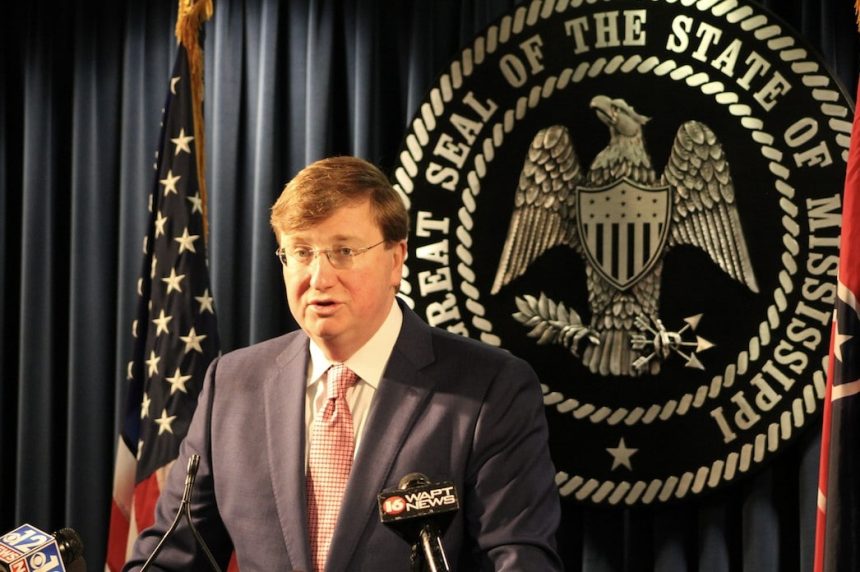During today’s press briefing, Governor Tate Reeves highlighted the continued downward trend in Mississippi’s new COVID-19 cases and the success of a recently launched workforce training program.
For the first time since late June, the state’s 7-day average has fallen below 500. Governor Reeves’ credited the “buy-in” of Mississippians to make that happen when it comes to social distancing and wearing masks in public. With that in mind, he explained that he will likely extend the statewide mask mandate, which is currently set to expire on Monday.

“We’ve proven that we can fight this thing without shutting down schools or without closing private businesses. Freedom with targeted intervention works. It is a tremendous ongoing achievement by the people of our great state, but make no mistake, it is still ongoing. We are still in the fight,” he said.
The governor did state that they will look toward the possibility of loosening restrictions regarding outdoor social gatherings — currently capped at 20.
Explaining the need for continued mask use, Governor Reeves noted that it will aid in keeping Mississippi’s schools open. State Health Officer Dr. Thomas Dobbs stated that 16 outbreaks last week resulted in 452 positive cases — 124 teachers and 326 students. 458 teachers and 4,057 students were placed on quarantine.
“If we can keep students six feet apart throughout the day, wearing a mask, they will never have to quarantine,” Dr. Dobbs said while encouraging schools to take the proper precautions to limit transmission.
Governor Reeves, joined by State Workforce Investment Board Chairman Patrick Sullivan, also announced that over 2,000 Mississippians have enrolled in the ReSkill Mississippi initiative which launched back in August. Using CARES Act funding, the program allows Mississippians out-of-work or those working reduced hours to “re-skill” in order to help prepare them for and fill high-demand, higher-paying jobs.
“We have long had more skilled jobs available than people trained to fill them, but this program can help thousands of Mississippians retrain for the skills needed for higher-paying jobs,” Sullivan said. “I believe this program will play an important role in sustaining a vibrant and growing Mississippi economy, and it is the type of effort that Mississippi should look to continue long after the CARES Act and the COVID-19 pandemic are gone.”
Sullivan also explained that almost 2/3 of the jobs lost due to COVID have returned to Mississippi which is above the national pace.







